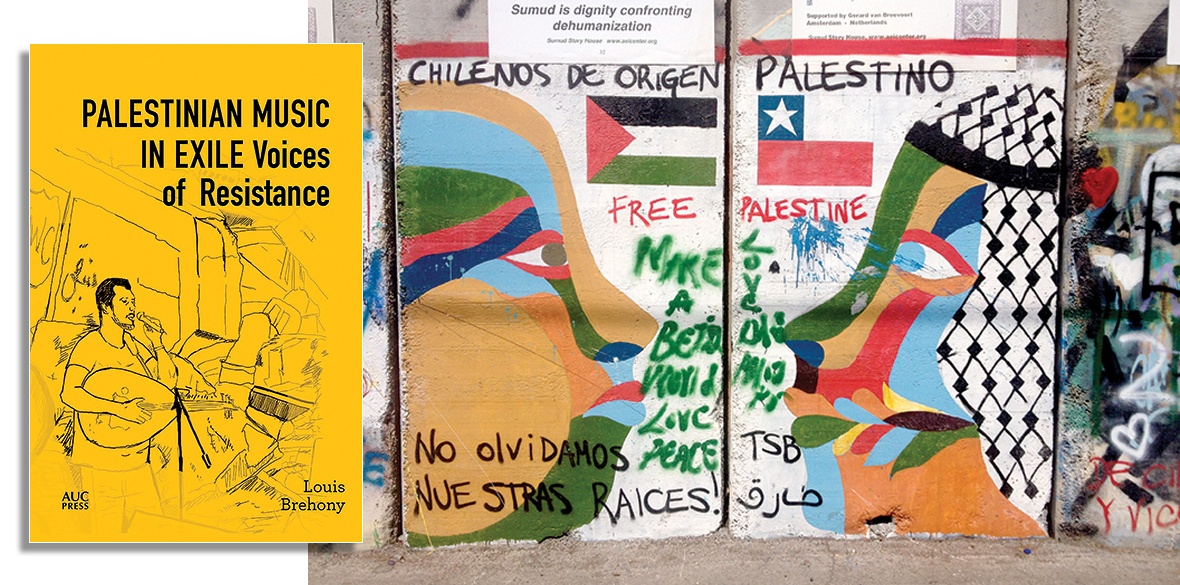This is the last article you can read this month
You can read more article this month
You can read more articles this month
Sorry your limit is up for this month
Reset on:
Please help support the Morning Star by subscribing here
Palestinian Music in Exile: Voices of Resistance
Louis Brehony, American University in Cairo, £49.95
MUSICIAN, activist and prominent scholar of Palestinian music, Louis Brehony performs a deep dive into the origins and significance of 20th century post-Nakba melodies while exploring how longstanding traditions, as well as decades of occupation and exile, have shaped the development of various genres of Palestinian music.
Brehony further explores how music has served as a medium for preserving Palestinian culture under the yoke of Israeli oppression, while also serving as a powerful form of non-violent resistance to occupation and keeping alive the hope that Palestine will one day shake off the chains in which it has been bound for decades.
Brehony interviews numerous musicians of Palestinian origin, such as Reem Kelani and Ahmad al-Khatib, who have found varying degrees of fame, to learn how their childhood experiences or diasporan existence in adulthood drew them to music and led them to create their own performance styles.
British-born Kelani, whose parents were displaced from a village in the West Bank, spent part of her childhood in Kuwait which was then home to a thriving Palestinian community and cultural scene. She started singing at an early age, during which time she was also exposed to a range of musical styles, including jazz, Western pop and traditional Palestinian wedding music.
Khatib, raised in a Palestinian refugee camp in Jordan, started playing the oud at an early age before choosing to return to Palestine as an adult. Initially his Iraqi-influenced performance style bemused Palestinians more accustomed to an Egyptian style of playing.
The oud, a centuries-old stringed instrument found across the Arab world that resembles a lute, is a staple for many of these musicians and Brehony discusses its historical and cultural importance.
We see too how Israeli attempts to appropriate or co-opt Palestinian music have faced stiff pushback from many musicians.
Brehony’s book provides examples of lyrics performed by artists both within Palestine and abroad. We learn that traditional melodies, such as wedding or folk songs, can also double up as songs of resistance and defiance. Some artists produce music where, in Brehony’s words: “The nationalism of the oppressed meets socialist visions of the future, throwing up rebellious, anti-imperialist cultural works.”
We also discover the Palestinian concept of “Sumud” which encompasses the idea of steadfastness and survival under occupation, by a population that seeks to preserve its identity in the face of overwhelming odds.
Some of the Palestinian musicians featured in the book have spent significant periods of time abroad. Historically, Palestinian musicians living in the diaspora have been afforded different degrees of freedom to perform and speak their minds, dependent upon the Arab country in which they have found themselves. However, such liberties can easily be rescinded on a whim. Palestinian artists in exile have faced arrest or oppression across various Middle Eastern countries, alongside casual racism from local populations, difficulties breaking into an established indigenous music industry, as well as a dearth of workers’ rights or union protection.
But overall, Sumud coupled with musical creativity remains strong in Palestine and in the diaspora. The preservation of cultural and musical identity is a significant achievement and a daily slap in the face of successive Israeli governments who, despite possessing superior military forces, fail to break the spirit or colonise the minds of the people whose land they occupy.
The book leaves the reader with the impression that although Palestinians are not yet free, their music and culture remain sources of strength and inspiration that have carried them through dark times and will one day help break their chains of oppression while, in the meantime, serving to keep their collective spirit alive.










